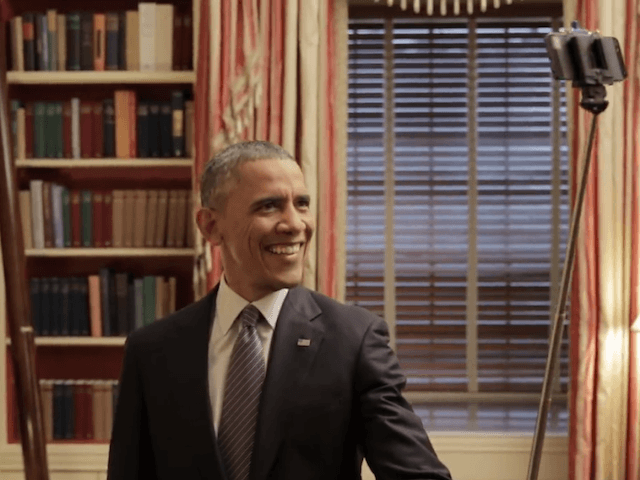In the recently released, but largely unheralded, National Security Strategy of the United States, the new buzz-word was “strategic patience.” As our unarmed Marines hastily departed Yemen, and ISIS closed in on their fellow devil-dogs in Iraq, the President was more than showing patience: he was making video about taking selfies.
The new National Security Strategy of the United States, which was a year late and strangely dropped on a Friday – a technique usually reserved for documents the administration doesn’t want to be read – opens with a a letter from President Obama. In it, he states that his answer to the threats and challenges that face the nation is “strategic patience.” Instead of tackling the dangers of the word proactively and head-on, America will play a waiting game. This fits neatly into previous approaches from the White House that have emphasized “leading from behind.” Given the geopolitical realties of today’s world, American voters should draw their own report card of what a reactive and “patient” approach has brought the Republic in the last six years:
- The Global Jihadist Movement: Not only is Al Qaeda not on the ropes, but ISIS /The Islamic State has overtaken it as a fully-fledged insurgency which is so powerful that latest reports have it attacking the base in Iraq where US Marines are deployed to assist the Iraqi army in standing itself back up after being routed last Summer. As media attention focuses again on the Middle East, especially after the gruesome immolation of Lt. Moaz al-Kasasbeh of the Royal Jordanian Air Force, the Jihadist movement grows ever stronger in Africa, with Boko Haram killing thousands and enslaving hundreds of Christian girls. Back home, we have the unprecedented statement by the director of the FBI that the Bureau is investigating ISIS activity in 49 states of the union. (Every state except Sarah Palin’s Alaska).
- On the Shia side of this global war, we see that not only is Iran very deftly outmaneuvering the administration when it comes to its nuclear program, its proxies are gaining ground in South Asia and the Middle East, most especially in Yemen, where the Houthis have captured the capital. This despite the fact that Yemen was lauded last year by the President as one of the true success stories of his counterterrorism strategy.
- The most populous and important Arab Muslim state, Egypt, has not responded well to “strategic patience” – or rather, strategic neglect and rejection of the White House. When the fundamentalist Muslim Brotherhood government of Mohammad Morsi was deposed by General Sisi, Cairo became the black sheep of the region as far as the administration is considered. This despite the fact that now-president Sisi is the only Muslim leader since 9/11 to openly call for a “religious revolution” in Islam aimed against the violent jihadists that threaten his nation as much as ours.
- With the “pivot to Asia” declared by then-Secretary Clinton resulting in nominal, if any actual, redirection of our attention to the region, China has proceeded to build up its military and use it to intimidate its neighbors and lay claim to new territories in ways that could very easily lead to a shooting war in the region.
- And in Europe, Vladimir Putin has managed to break a 60-plus year international taboo by using force to redraw borders and annex the territory of a neighboring state. Clearly, the former KGB colonel believes in being a pro-active leader.
This is just a short version of a disturbing list that could be made much longer. The empirical truth on the ground is that we have enemies at home and abroad, enemies who believe neither in “leading from behind” nor in “strategic patience.” At the same time, the most powerful nation the world has ever seen has a Commander-in-Chief who is Absent With Out Leave.
Sebastian Gorka Ph.D. is the Matthew C. Horner Distinguished Chair of Military Theory at the Marine Corps University. Follow him at @SebGorka.

COMMENTS
Please let us know if you're having issues with commenting.